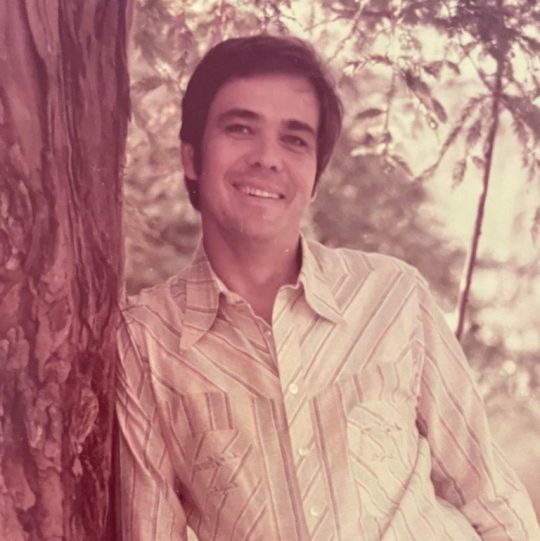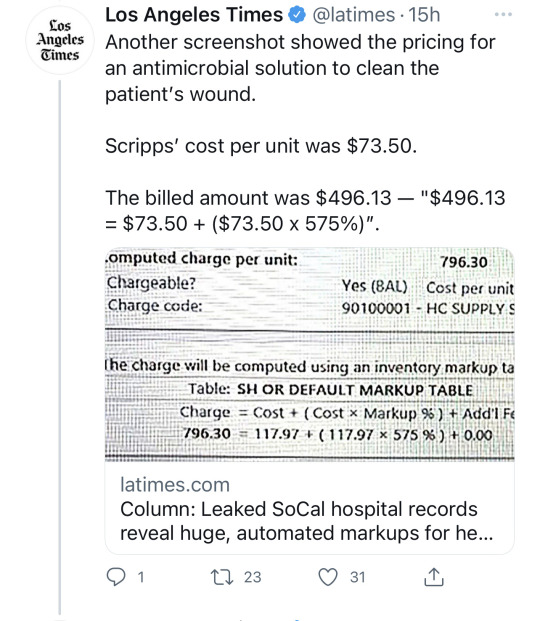#scripps memorial hospital
Text
can insurance campanies drop you?
Insurance companies exist to provide individuals and businesses with protection against financial losses resulting from unexpected events. Whether it's auto insurance, health insurance, or homeowners insurance, people purchase these policies with the expectation that they will be covered when they need it most.
However, it's not always a guarantee that a policy will remain in effect indefinitely. Insurance companies have the right to cancel or non-renew policies under certain circumstances. This can be a frustrating and confusing experience for policyholders, but it's important to understand the reasons why an insurance company may drop you.
Reasons why an insurance company may drop you
Non-payment of premiums: The most common reason why an insurance company may drop you is if you fail to pay your premiums. Insurance policies require regular payments to remain in effect, and if you miss a payment, your policy may be canceled.
Fraudulent activity: If an insurance company discovers that a policyholder has engaged in fraudulent activity, they may cancel the policy. This could include submitting false claims, providing inaccurate information on an application, or misrepresenting information about a loss.
High-risk behavior: Insurance companies may drop policyholders who engage in high-risk behavior, such as reckless driving or participating in dangerous activities. This is because these individuals are more likely to file claims and cost the insurance company money.
Changes in risk: Insurance companies may also cancel policies if there is a significant change in the level of risk that the policyholder presents. For example, if a homeowner installs a swimming pool in their backyard, the insurance company may drop them because the risk of someone being injured on the property has increased.
End of coverage period: Some insurance policies have a set coverage period and will automatically expire at the end of that period. In these cases, the policyholder will need to renew the policy if they want to continue coverage.
What to do if your insurance company drops you
If your insurance company drops you, it's important to take action quickly to avoid being left without coverage. Here are some steps to take:
Find out why your policy was dropped: Contact your insurance company to find out why your policy was canceled. Understanding the reason behind the cancellation can help you determine your next steps.
Shop around for new coverage: Once you know why your policy was canceled, start shopping around for new coverage. Be honest about why your previous policy was canceled, as this can impact the rates and coverage options you are offered.
Consider working with an independent insurance agent: An independent insurance agent can help you find coverage options that meet your needs and budget. They can also help you navigate the sometimes complicated world of insurance and ensure that you are getting the best coverage for your situation.
Appeal the cancellation: If you believe that your policy was canceled unfairly, you may be able to appeal the decision. Contact your insurance company to find out what the appeals process entails.
Conclusion
Insurance companies have the right to cancel policies under certain circumstances, but it's important to understand why this may happen and what steps you can take to protect yourself. By staying on top of your premiums, being honest on your applications, and avoiding high-risk behavior, you can help ensure that your insurance policy remains in effect when you need it most. And if your policy is canceled, don't panic – there are steps you can take to find new coverage and protect yourself financially.
#politics#healthcare#profitized healthcare#for profit healthcare#insurance companies#corporate greed#capitalism#insurance#price gouging#medicare for all#scripps memorial hospital#flowers#nature#artists on tumblr#succession#alternative#technology
2 notes
·
View notes
Text
Erika Charlotte Wullschleger Peterson, 28 (USA 1961)
Erika’s case is unusual. Although she underwent a legal abortion and died from it like so many others, her case happened in 1961 with the “life of the mother” exception.
At this time, abortion was only legal in California for “life of the mother” cases. Erika was hospitalized at Scripps Memorial Hospital in La Jolla, California on July 11, 1961. She was diagnosed with pneumonia and put in a tank respirator. She was also discovered to be pregnant in the first trimester.
Doctors decided to perform an abortion on Erika. She never signed any forms consenting to the abortion, but the hospital went through with the abortion anyway by having her husband sign the consent forms. On July 21, Erika was improving, but the abortion was scheduled for 2 days later.
On July 23, a first-trimester abortion was done on Erika. In the process, she went into cardiac arrest. She couldn’t be resuscitated and died with her unborn baby that day. The abortion that was allegedly supposed to save her life killed her instead.
Abortion is not a cure for pneumonia. It was extremely reckless to attempt an abortion on a patient who was already so sick. Erika left behind her husband and a surviving daughter named Yvonne.
California Certificate of Death File # 61-081581
San Diego County Coroner's Report # 37646
#tw abortion#pro life#unsafe yet legal#tw murder#tw ab*rtion#abortion#abortion is not healthcare#pre roe legal#abortion debate#death from legal abortion
16 notes
·
View notes
Text
A Love so Sweet, it Hurts 🥀 - Prologue

Scripps Memorial Hospital - San Diego, CA
Feburary 13th, 2011
Footsteps padded across the linoleum floors as people walked by, the elevator dinging as it made it to the ground floor, and espresso being grounded up as the barista started on the hazelnut latte with whipped cream. The custodian pushed their cart over to the spilled juice near the gift shop, where a little boy had dropped it only 9 minutes ago. Speaking of which, the cashier scrolled on her phone as a man awkwardly browsed the 'Congratulations it’s a Boy!' cards he would give to his best friend and wife, whose baby potentially could be his. And in the middle of it all, a journalist beelined towards the woman standing by the coffee counter, who was finishing a sudoku puzzle. Head held up high, heels clicking against the floor, and a uncontainable grin plastered on her lips. "Dr. Velasco?" she asked as she approached the attending in maroon scrubs, "It's Dr. Tala Velasco, right?"
"Who's asking?"
"My names Lyla McDowell, I'm a journalist with The Washington Post, but I'm here on more of a...personal matter," she explained with a slight chuckle to break the ice, "You see, I'm writing a book about Walter White and Saul Goodman and what happened in Albuquerque. You were Hector Salamanca and his mother's cardiologist at the time, and I just wanted to ask if you knew anything about the Salamanca's, or suspected them of anything?"
For a second she stopped, but continued on, not interested enough to even look at the journalist. Though, she did murmur something that Lyla did hear at first. "I'm sorry what was that?"
"I said: piss off."
Finally, Dr. Tala turned her attention to the woman. Her expression was apathetic, unreadable to anyone. Her tone was as well. She didn't sound angry or upset, just indifferent to the conversation. Lyla nodded, but tried to keep a friendly expression. To be frank, she's received worse responses over the years. "Dr. Velasco, I know it's been a while and might be hard for-..."
"No, not hard at all. But, apparently, it is for you. So, let me make myself very clear: I don't know anything about the Salamanca's and I don't care. And if, by chance, I happen upon your book at the airport or checkout line at the grocery store, and see my name anywhere in it, you're not gonna hear from my lawyers. You'll be hearing for me. So, you can take 'Walter White: From Mr. Rogers to Scarface,' or whatever cheesy title you already decided to call your book, and shove it up your ass. Now, you can either leave my hospital, or I'll stab my pen in your eye. Understood?"
Lyla stood there speechless, mouth agape as she listened to her calmly explain the situation. A chill rolled down the writer's spine as she starred deeply into the doctor's eyes. She seemed so detached, it was a littler unnerving. "I-I...Have a good day."
Without another word, she scurried away, tail tucked between her legs and she didn't dare look back. Tala just shook her head and sighed before turning back to her sudoku. "And you wonder why the interns here call you the general," the barista remarked as he frothed up the milk.
Tala chuckled, "And I thought it was the barista's just to keep their mouths shut and keep the coffee hot."
He put a hand over his chest, as if the comment actually wounded him. "Ouch, here I was gonna give you a discount," he teased.
"Danny, if I can't get a new Hoyer lift till April, there's no way in hell you're allowed to give discounts," she said, he just laughed.
Danny finished up her drink before handing it over, "So, is it true?"
"That I was Hector Salamanca's cardiologist? Yeah. And Dr. Mike Kukral was classmates with Jeffery Dahmer," she replied with a shrug, "Everyone has their alumni, mine just happen to be drug dealers. Thanks, Danny."
Tala took her sudoku puzzle and latte as she walked off to the closest bathroom. She set her things down and made sure no one was around before locking the door and letting a deep breath, sobbing as the tears began to roll down her face. Her guts twisted and her heart burned as she fell to her knees, not caring if anyone heard her at this point.
Salamanca.
It's been years since she every uttered that name, but it always been in her mind. One Salamanca in particular. No matter how far she went, no matter how hard she tried, Lalo would always be apart of her.
#better call saul lalo#lalo salamanca x oc#lalo salamanca fanfic#eduardo lalo salamanca#Lalo Salamanca#a love so sweet it hurts#peachyxboy
3 notes
·
View notes
Text

ROBERT JOHN KAMINSKY
Robert John Kaminsky—a man whose passionate drive to succeed in the auto industry was driven as much by early sibling rivalry as it was to provide the finest money could buy for his wife and children—passed away at Scripps Memorial Hospital, in La Jolla, CA, on July 11, 2021, his family at his side. He was 83.
0 notes
Text
Column-California healthcare provider's move shows pitfalls of Medicare Advantage
© Reuters. SUBMIT PHOTO: An emergency situation indication indicate the entryway to Scripps Memorial Hospital in La Jolla, California, U.S. March 23, 2017. REUTERS/Mike Blake/File Photo
By Mark Miller
(Reuters) – Many individuals on Medicare look the other method when the program’s yearly registration duration rolls around, choosing just to disregard the trouble. For thousands of senior citizens…

View On WordPress
0 notes
Text
California hospitals use tents to treat overflow of flu cases as positive tests rise 259 PERCENT
California hospitals use tents to treat overflow of flu cases as positive tests rise 259 PERCENT
Several Southern California hospitals have started using overflow tents outside emergency rooms to deal with increasing numbers of patients with influenza and other respiratory illnesses.
Tents have been set up at Scripps Memorial Hospital in Encinitas, Jacobs Medical Center at UC San Diego Health in La Jolla, and Sharp Grossmont Hospital in La Mesa.
The move comes amid an increase in flu…

View On WordPress
0 notes
Text
Day 28- A picture of you last year and now, how have you changed since then?


The first photo of me was in Charlotte, North Carolina in August 2021. I was visiting two good friends and their baby daughter, who was about two months old at the time. On that day that photo was taken, my friends and I enjoyed a warm summer's day hanging out at an old red brick warehouse complex that had been converted into a hip, art collective-esque space with cafes, galleries, and a traveling Van Gough exhibit. I daydreamed, listened to A Tribe Called Quest that was reverberating from some nearby speakers, looked up at the clouds, and watched my friends interact with their baby daughter; it was probably the first moment I recall that I was viscerally inspired to become a parent myself one day in the future. Later, we drove around downtown Charlotte before finding a quiet community park tucked away in the city, where my friend and I walked around the baseball field and his wife nursed the baby in the car as a rainstorm was approaching. As my friend and I walked back to the car we ended up getting caught in the rain for a bit. I asked him to take a portrait of me in the parking lot to commemorate the moment once the rain let up. We had smoked turkey, beef brisket, baby back ribs, hushpuppies, and cold beers for dinner before returning back home for the night.
I often think about how my life might have turned out differently if I had decided to take shelter with these friends in North Carolina instead of going to Texas when I had to evacuate New Orleans from Hurricane Ida only a few weeks later. I probably would not have been living as recklessly and wildly as I had been in Austin or Dallas, since I would have been in a more stable, domestic household than couch surfing with my other bachelor friends. Even though a lot of the food options in both North Carolina and Texas are not too dissimilar, I would probably still have been eating more wholesome, nutritious home-cooked foods if I had been taking shelter in Charlotte. Realistically, I also would not have been exposed to as many people there compared to either Austin or Dallas too. But a lot of that type of thinking is just a never-ending rabbit hole of hypothetical "what-ifs." I have since made peace with the realization that I made a serious of poor, irrevocable decisions with my health and well-being during my "evacuation vacation" in Texas that proved to be my downfall. And that is a lesson I have to live with for the rest of my life going forward.
The second photo of me was taken at Scripps Pier in La Jolla, California, about three months after I had been discharged from the hospital in San Diego following my double lung transplant. In about the year since these two photos were taken, I was hospitalized in three different states, lost my father, survived 165 days on ECMO treatment, received my double lung transplant surgery, began playing more video games and watching more movies and television series, reconnected with formerly estranged friends and family, lost 45 pounds from being in the hospital, regained almost 30 pounds since getting out, released a full-length album with my folk rock band, began a lifelong medication regiment as a transplant recipient, and underwent a surgical procedure to remove a polyp from above my vocal cord and seal up the hole in my neck from my trach tube.
Life as I knew it before feels like a distant memory—finishing my first year of graduate school in New Orleans, playing music and performing at gigs with my band, bicycling around and exercising at Audubon Park, smoking a joint and enjoying a cold beer, hiking through the mountains and swimming at the beaches in Hawaii, beginning in person classes for my second year of graduate school, and working towards completing my master's thesis in musicology. Now, I have had to put my studies on hold to take a medical leave of absence and I am still in full-time recovery in San Diego, living with my mom and grandma. I have recently resumed writing tutoring and coaching UCSD's mock trial program in my spare time. I do miss regularly playing music with other musicians; playing my instruments by myself without going busking or collaborating with other creatives does not hold the same appeal anymore. I have been sober from any recreational drugs and alcohol for over a full year by now, and I intend to keep it that way until the one year anniversary of my transplant surgery, after which I will decide to what extent I want to reintroduce any substances back into my life. Maybe I will find that I am better off without any of them.
The one thing that has not necessarily changed but has substantially deepened has been my belief and faith in God and Jesus Christ. I do not know how an inveterate atheist or someone who denies the existence of a higher power could have survived the ordeal that I went through, both from a mental fortitude perspective and also the circumstances and timing surrounding the events that transpired throughout my extended hospitalization and leading up to my surgery, over which I had absolutely no control or influence over. I cannot simply dismiss the miracle of my survival as a random, chaotic coincidence that I could probably do all over again and yield the same favorable results based on another spin of the cosmic lottery wheel.
A good friend of mine told me that even though a lot of my life circumstances might have changed, he did not see me as any different than the Kyle that he knew before. I might have added new layers to who I currently am based on what I have been through, but at the end of the day, he still saw me as the same person who is constantly growing and evolving into who I am today. That was encouraging to hear for me when I was still in the hospital, since I felt like a helpless shell of a human being for so long, at the mercy of the medical staff and God at all times. But just to be alive today is a miracle in itself and the rest of the journey is still waiting to be continued.
0 notes
Text
犀利士資訊:揭密:人類第二大腦(腸道)神經細胞如何運作?
腸道有別於其他器官,神經叢密集,就像大腦一樣可以分泌各種激素並產生神經傳導物質,早在1907年美國拜倫羅賓遜(Byron Robinson)醫師就提出「腹腦」的理論,而1998年哥倫比亞大學解剖學暨細胞生物學邁克·傑松(Michael D. Gershon)教授也提出「第二大腦」的理論。腸道神經系統(Enteric Nervous System ,ENS)擁有完整的神經網絡,包含感覺神經元、中間神經元、和運動神經元,比脊椎與其他周邊神經系統的神經元還多。其絕大多數功能不受大腦的意志力左右。 2018年5月澳洲弗林德斯大學(Flinders University)神經生理學尼克.史賓塞(Nick Spencer)教授發表了一篇研究報告在《神經科學期刊》(Journal of Neuroscience),試圖揭密位於腸壁內的大量神經元是透過何種運作方式,促使結腸內容物向前推進。 研究人員觀察了安樂死小鼠的大腸,其中包含400,000個獨立的神經元。研究人員使用高解析度神經元影像技術來偵測,並同時利用電極來測量動作電位,也就是神經元的電脈衝(electrical impulses),結果在小鼠腸道中發現這些結腸神經元的動作電位是以一種極有節律(~2Hz)且同步的模式在運行。 小鼠的腸道同步這些動作電位,並在腸道產生收縮作用,腸道收縮作用將有助於將食物廢棄物通過腸道、排出體外,這點與第一大腦的神經系統運作模式大不相同。這樣的運作模式之前並沒有被發現。 腸道最重要的奧秘之一,就是如此數量龐大的腸道神經元(含括大量興奮性與抑制性神經元)到底是如何協調運作來導致平滑肌細胞正確且規律收縮,從而促使結腸內的物質向前推進?假使不夠協調,恐怕就會像端午節划龍舟一樣,前進緩慢,或停滯不前,或甚至翻船落水。 這一連串的協調前進過程被稱為「結腸複合位移運動」(colonic migrating motor complex, CMMC),也稱為移行性複合運動,通常發生在兩餐之間(非進食期間)。這些分布在腸道平滑肌內,以百萬計的神經細胞讓消化道出現一次又一次地蠕動,把難消化的物質(如骨骼或纖維)從胃輸出,通過小腸進入大腸。除了移動之外,神經細胞也在我們飢餓犀利士5mg售價時,負責讓腸道發出巨犀利士台灣大「咕嚕咕嚕」的聲響,通知你該吃飯了。史賓塞教授據此認為,腸道確實是會思考的腹腦,而且是發號指令給大腦。 美國斯克里普斯紀念醫院(Scripps Memorial Hospital)神經學家庫利特·查德里(Kulreet Chaudhary)醫師亦指出,腸道神經系統就像大腦一樣,也會發出訊息和接收訊息、紀錄平常經驗、同時影響情緒起伏。查德里醫師認為大腦實際上大多是聽令,而腸道神���系統則負責發出90%的指令。因此,腸道不健康,影響將會遍及全身。 腸道的神經系統其實和大腦也有密切的互動,美國一篇研究報告證實小鼠腸道感覺神經細胞可以透過血清素(serotonin, 又稱5-HT)直接與腸道神經元進行對話,並將訊息讓大腦知道。 2017年6月22日美國加州大學舊金山分校神經科學David Julius教授發表在《細胞》(Cell)期刊的研究,顯示透過研究小鼠腸道類器官(intestinal organoids)和腸道組織切片中 犀利士藥局 的腸道感覺細胞--即腸嗜鉻細胞(enterochromaffin cell),得知腸嗜鉻細胞在腸道是扮演化學感測器(chemosensors)的功能,經由突觸連接調節血清素敏感性初級傳入神經纖維(serotonin-sensitive primary afferent nerve fibers),使腸嗜鉻細胞能夠偵測並將腸道內的環境、代謝和體內恆定訊息直接傳遞到中樞神經系統。 腸嗜鉻細胞是一種腸內分泌細胞(enteroendocrine cell),僅佔腸道上皮不到1%,但卻負責產生身體90%的血清素。之前曾有研究指出這些細胞發揮化學感測器的作用,偵測腸道中的分子,並且作出反應,分泌血清素來觸發神經元控制腸道的蠕動。 而血清素也扮演執行大腸收縮及蠕動動作的角色,大腸內的血清素與神經纖維接受體結合,刺激神經傳導,當血清素作用在腸道的黏膜下神經叢時,會導致腸壁肌肉收縮及腸道蠕動,將糞便排出體外。若是神經傳導物質的功能失調,腸道蠕動過慢,就會出現腹脹、便秘等情況,造成不適。 此外,腸道的神經系統也和腸道內細菌產生密不可分的互動,2015年4月加州理工學院(Caltech)生物學和生物工程系台裔助理教授蕭夷年之研究團隊,發表在《細胞》(Cell)期刊的研究報告指出,腸道菌叢對於血清素的產生影響至鉅,而血清素也是大腦內重要的神經傳導物質,血清素的濃度變化和很多疾病的發生有關,像是腸躁症、心血管疾病、骨質疏鬆症、憂鬱症及自閉症等精神疾病皆相關。中國古代常說「百結愁腸」、「柔腸寸斷」、以及「牽腸掛肚」,在在突顯了腸道神經系統和情緒之間密不可分的關係 ! 在我們完全瞭解正常且健康的腸道神經細胞是如何有節律地同步化的運作之後,科學家就能開始進一步瞭解一些功能運作不正常的腸道,到底是出了哪些問題,然後進一步謀求解決之道,像是慢性便秘在全球影響很多人,就是因為腸道神經細胞無法正常運作所導致的。相信在不久的將來,醫學進步將更能對症下藥,解決許多困擾人類許久的腸道蠕動問題,造福全人類。 (圖片來源:Pixabay silviarita) (本文作者為陽明大學醫學院藥理學研究所教授)
1 note
·
View note
Text







Leaked hospital records reveal huge, automated markups for healthcare
A former nurse at Scripps Memorial Hospital showed columnist David Lazarus screenshots of the facility’s electronic health record system. The screenshots show price hikes ranging from 575% to 675% being automatically generated by the hospital’s software.
👉🏿 https://www.latimes.com/business/story/2021-12-10/column-healthcare-billing-markups
#politics#healthcare#profitized healthcare#for profit healthcare#insurance companies#corporate greed#capitalism#insurance#price gouging#medicare for all#scripps memorial hospital
12K notes
·
View notes
Text
Chutes & Ladders—Providence hires new chief legal officer; CoxHealth's next CEO, president comes from within
Chutes & Ladders—Providence hires new chief legal officer; CoxHealth’s next CEO, president comes from within
Chutes & Ladders—Providence hires new chief legal officer; CoxHealth’s next CEO, president comes from within
dmuoio
Thu, 03/31/2022 – 16:35
Source link
View On WordPress
#Ascension Health#Catholic Health#Centivo#Chutes and Ladders#Color Health#CoxHealth#Digital health#Everly Health#Fierce Healthcare Homepage#Hospitals#Integris Health#LetsGetChecked#maven#Memorial Hermann Health System#Novant Health#Payers#Practices#Providence Health & Services#Providers#Scripps Health#Strive Health#Telehealth#UnityPoint Health#University Hospitals
0 notes
Link
We need Medicare For All and we need it yesterday.
#WE MUST DO BETTER#we can reject the future they want to sell us#we can build a better world#in the certainty that it makes sense#futures are built only in the present#we have to decide what kind of world we want to live in#mpsg#intolerable#demand accountability#law is made and can be unmade made again made better
123 notes
·
View notes
Text
https://www.latimes.com/business/story/2021-12-10/column-healthcare-billing-markups

Ridiculous, seemingly arbitrary price markups are a defining characteristic of the $4-trillion U.S. healthcare system — and a key reason Americans pay more for treatment than anyone else in the world.
But to see price hikes of as much as 675% being imposed in real time, automatically, by a hospital’s computer system still takes your breath away.
I got to view this for myself after a former operating-room nurse at Scripps Memorial Hospital in Encinitas shared with me screenshots of the facility’s electronic health record system.
The nurse asked that I not use her name because she’s now working at a different Southern California medical facility and worries that her job could be endangered.
Her screenshots, taken earlier this year, speak for themselves.
What they show are price hikes ranging from 575% to 675% being automatically generated by the hospital’s software.
The eye-popping increases are so routine, apparently, the software even displays the formula it uses to convert reasonable medical costs to billed amounts that are much, much higher.
For example, one screenshot is for sutures — that is, medical thread, a.k.a. stitches. Scripps’ system put the basic “cost per unit” at $19.30.
But the system said the “computed charge per unit” was $149.58. This is how much the patient and his or her insurer would be billed.
The system helpfully included a formula for reaching this amount: "$149.58 = $19.30 + ($19.30 x 675%).”
You read that right. Scripps’ automated system took the actual cost of sutures, imposed an apparently preset 675% markup and produced a billed amount that was orders of magnitude higher than the true price.
14 notes
·
View notes
Text
California hospitals use overflow tents for growing number of flu patients
California hospitals use overflow tents for growing number of flu patients
Several Southern California hospitals have started using overflow tents outside emergency rooms to deal with increasing numbers of patients with influenza and other respiratory illnesses.
The San Diego-Union Tribune reported Friday that overflow tents had been set up at Scripps Memorial Hospital in Encinitas, Jacobs Medical Center at UC San Diego Health in La Jolla and Sharp Grossmont Hospital in…

View On WordPress
0 notes
Text
AAV Accident - 1 Marine Dead, 8 Missing off California Coast
AAV Accident – 1 Marine Dead, 8 Missing off California Coast
One Marine is dead, 8 others missing after an AAV accident off the Coast of California. The Amphibious Assault Vehicle was part of a training exercise for the 15th Marine Expeditionary Unit (MEU) near San Clemente Island. There were 15 Marines and 1 sailor aboard the vessel.
The deceased Marine’s name is being withheld for 24 hours. He was airlifted to Scripps Memorial Hospital La Jolla near San…
View On WordPress
3 notes
·
View notes